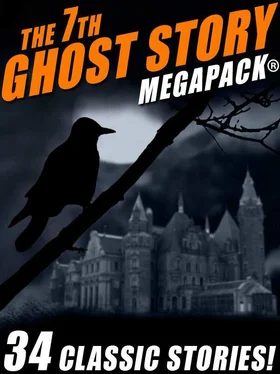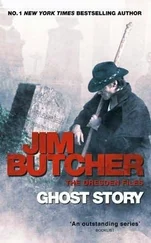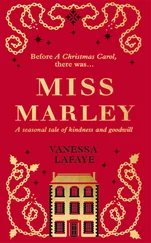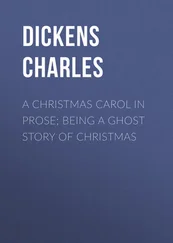* * *
“Did you ever see an old abbey before, Mr Peters?”
“Yes, miss, a French one; we have got one at Ramsgate; he teaches the Miss Joneses to parley-voo, and is turned of sixty.”
Miss Simpkinson closed her album with an air of ineffable disdain.
Mr Simpkinson from Bath was a professed antiquary and one of the first water; he was master of Gwillim’s Heraldry, and Milles’s History of the Crusades; knew every plate the Monasticon; had written an essay on the origin and dignity of the office of overseer, and settled the date of a Queen Anne’s farthing. An influential member of the Antiquarian Society, to whose “Beauties of Bagnigge Wells” he had been a liberal subscriber, procured him a seat at the board of that learned body, since which happy epoch Sylvanus Urban had not a more indefatigable correspondent. His inaugural essay on the President’s cocked hat was considered a miracle of erudition: and his account of the earliest application of gilding to gingerbread, a masterpiece of antiquarian research. His eldest daughter was of a kindred spirit: if her father’s mantle had not fallen upon her, it was only because he had not thrown it off himself; she had caught hold of its tail, however, while it yet hung upon his honoured shoulders. To souls so congenial, what a sight was the magnificent ruin of Bolsover! its broken arches, its mouldering pinnacles, and the airy tracery of its half-demolished windows. The party were in raptures; Mr Simpkinson began to meditate an essay, and his daughter an ode: even Seaforth, as he gazed on these lonely relics of the olden time, was betrayed into a momentary forgetfulness of his love and losses; the widow’s eye-glass turned from her cicisbeo’s whiskers to the mantling ivy: Mrs Peters wiped her spectacles; and “her P.” supposed the central tower “had once been the county jail.” The squire was a philosopher, and had been there often before, so he ordered out the cold tongue and chickens.
“Bolsover Priory,” said Mr Simpkinson, with the air of a connoisseur,—“Bolsover Priory was founded in the reign of Henry the Sixth, about the beginning of the eleventh century. Hugh de Bolsover had accompanied that monarch to the Holy Land, in the expedition undertaken by way of penance for the murder of his young nephews in the Tower. Upon the dissolution of the monasteries, the veteran was enfeoffed in the lands and manor, to which he gave his own name of Bowlsover, or Bee-owls-over (by corruption Bolsover),—a Bee in chief, over three Owls, all proper, being the armorial ensigns borne by this distinguished crusader at the siege of Acre.”
“Ah! that was Sir Sidney Smith,” said Mr Peters; “I’ve heard tell of him, and all about Mrs Partington, and—”
“P., be quiet, and don’t expose yourself!” sharply interrupted his lady. P. was silenced, and betook himself to the bottled stout.
“These lands,” continued the antiquary, “were held in grand serjeantry by the presentation of three white owls and a pot of honey—”
“Lassy me! how nice!” said Miss Julia. Mr Peters licked his lips.
“Pray give me leave, my dear—owls and honey, whenever the king should come a rat-catching into this part of the country.”
“Rat-catching!” ejaculated the squire, pausing abruptly in the mastication of a drumstick.
“To be sure, my dear sir: don’t you remember that rats once came under the forest law—a minor species of venison? ‘Rats and mice, and such small deer,’ eh?—Shakspear, you know. Our ancestors ate rats (“The nasty fellows!” shuddered Miss Julia in a parenthesis); and owls, you now, are capital mousers—”
“I’ve seen a howl,” said Mr Peters; “there’s one in the Sohological Gardens,—a little hook-nosed chap in a wig,—only its feathers and—”
Poor P. was destined never to finish a speech.
“ Do be quiet!” cried the authoritative voice, and the would-be naturalist shrank into his shell, like a snail in the “Sohological Gardens.”
“You should read Blount’s ‘Jocular Tenures,’ Mr Ingoldsby,” pursued Simpkinson. “A learned man was Blount! Why, sir, his Royal Highness the Duke of York once paid a silver horse-shoe to Lord Ferrers—”
“I’ve heard of him,” broke in the incorrigible Peters; “he was hanged at the old Bailey in a silk rope for shooting Dr Johnson.”
The antiquary vouchsafed no notice of the interruption; but, taking a pinch of snuff, continued his harangue.
“A silver horse-shoe, sir, which is due from every scion of royalty who rides across one of his manors; and if you look into the penny county histories, now publishing by an eminent friend of mine, you will find that Langhale in Co. Norf. was held by one Baldwin per saltum sufflatum, et pettem; that is, he was to come every Christmas into Westminster Hall, there to take a leap, cry hem! and—”
“Mr Simpkinson, a glass of sherry?” cried Tom Ingoldsby, hastily.
“Not any, thank you, sir. This Baldwin, surnamed Le —”
“Mrs Ogleton challenges you, sir; she insists upon it,” said Tom, still more rapidly; at the same time filling a glass, and forcing it on the sçavant , who, thus arrested in the very crisis of his narrative, received and swallowed the potation as if it had been physic.
“What on earth has Miss Simpkinson discovered there?” continued Tom; “something of interest. See how fast she is writing.”
The diversion was effectual: every one looked towards Miss Simpkinson, who, far too ethereal for “creature comforts,” was seated apart on the dilapidated remains of an altar-tomb, committing eagerly to paper something that had strongly impressed her: the air,—the eye “in a fine frenzy rolling,”—all betokened that the divine afflatus was come. Her father rose, and stole silently towards her.
“What an old boar!” muttered young Ingoldsby; alluding, perhaps, to a slice of brawn which he had just begun to operate upon, but which, from the celerity with which it disappeared, did not seem so very difficult of mastication.
But what had become of Seaforth and his fair Caroline all this while? Why, it so happened that they had been simultaneously stricken with the picturesque appearance of one of those high and pointed arches, which that eminent antiquary, Mr Horseley Curties, has described in his “Ancient Records” as “a Gothic window of the Saxon order;”—and then the ivy clustered so thickly and so beautifully on the other side, that they went round to look at that;—and then their proximity deprived it of half its effect, and so they walked across to a little knoll, a hundred yards off, and in crossing a small ravine, they came to what in Ireland they call a “bad step,” and Charles had to carry his cousin over it,—and then, when they had to come back, she would not give him the trouble again for the world, so they followed a better but more circuitous route and there were hedges and ditches in the way, and stiles to get over, and gates to get through; so that an hour or more had elapsed before they were able to rejoin the party.
“Lassy me!” said Miss Julia Simpkinson, “how long you have been gone!”
And so they had. The remark was a very just as well as a very natural one. They were gone a long while, and a nice cosey chat they had; and what do you think it was all about, my dear miss?
“O, lassy me! love, no doubt, and the moon, and eyes, and nightingales, and—”
Stay, stay, my sweet young lady; do not let the fervour of your feelings run away with you! I do not pretend to say, indeed, that one or more of these pretty subjects might not have been introduced; but the most important and leading topic of the conference was—Lieutenant Seaforth’s breeches.
Читать дальше












